
Better Spelling In 30 Minutes a Day
By
Robert W. Emery and Harry H. Crosby
Copyright 1994 by Harper Collins College Publishers Trade edition published 1995 by The Career Press, Inc. All rights reserved under the Pan-American and International Copyright Conventions. This book may not be reproduced, in whole or in part, in any form or by any means electronic or mechanical, including photocopying, recording, or by any information storage and retrieval system now known or hereafter invented, without written permission from the publisher, The Career Press. by Book-mart Press To order this title, please call toll-free 1-800-CAREER-l (NJ and Canada: 201-848-0310) to order using VISA or MasterCard, or for further information on books from Career Press.
Library of Congress Cataloging-in-Publication Data Emery, Robert W.
Library of Congress Cataloging-in-Publication Data Emery, Robert W.
Better spelling in 30 minutes a day / by Robert W. Emery and Harry H. Crosby. p. cm. Includes index.
ISBN 1-56414-202-7 (pbk.) 1. English languageOrthography and spelling. I. Crosby, Harry H. II. Title.
PE1145.2.E44 1995 428.1dc20 95-4818
CIP
Contents
Chapter
Diagnostics
Please consider the following questions: Do you think you are a good speller? Do you frequently ask your roomate how to spell words? Do you use the dictionary more then you think you should? Have you recieved alot of low grades on your papers because of poor spelling? What we wanted you to consider in the questions was the spelling. Did you notice that some words were misspelled? Look again. What are the misspelled words? The misspelled words are
roomate (should be
roommate); then (instead of
than); alot, which should be two words
(a lot) rather than one; and
recieve (should be
receive). If you were fooled by our trick and did not notice the misspelled words, you need this book. Even if you noted the misspellings, you must have some reason for having this book in your hands. Perhaps you have had evidence in the past that you do not spell well.
It may be that your teachers have told you that your writing is marred by poor spelling.
1.1 The Importance of Spelling
What if you do not spell well? What if your college papers come back with misspellings circled? Why do you need to improve your spelling skills? The answer is, purely and simply, that because of the misspelling you usually get a lower grade. Time after time college teachers of all subjects have indicated that they are affected adversely by misspelling. Misspelling casts a reverse halo on a paper. Some college teachers seem to feel that a student who cannot spell or take the care to spell correctly has nothing important to say and deserves a poor grade. Is this problem limited to college? Anyone who has ever served on a search committee (a group of people whose task is to hire someone) knows the importance of the ability to spell.
When a committee is appointed to hire a new director for an art center, an administrative assistant for the mayor, a new division head in a factory, or a coach of a football team, each member of the committee reads the application letters and passes them on to the next member. By the time the letters get to a third reader, any misspellings will have been circled. When the search committee looks at the first hundred or so applications, they are looking for an excuse to reject candidates. Apparently there is no easier method than to indicate misspellings, and candidates whose letters contain even one misspelling often do not get past the first round. Are we saying that your attempts to get good grades in college and a good job afterward are jeopardized by an inability to spell? We are. The same holds true, unfortunately, in almost any branch of human endeavor.
A study at a large corporation showed that a person might get a job because of an initial skill, but to move up the ladder or to move laterally into a different department he or she needs the ability to writeand spelling is one of the most noticeable features of good writing. All too often, spelling does keep a person from getting a good grade, from selling something, from getting a job, or from being accepted to a graduate school. It is for these reasons that this spelling textbook has been written.
1.2 Programmed Instruction
Have you used a programmed textbook before? You may have noticed that much of what you have just read was in the form of questions and answers. This was to prepare you for the rest of the book, much of which is programmed instruction. A programmed text teaches by involving the student in a series of questions and answers.
When you see a question followed by a write-in line, you should put a card or a piece of paper over the section below the line. By hiding the answers to questions, you will have an opportunity to think out an answer before you read on. Programmed texts are useful because research shows that students understand and remember best when they get involved in a conversation. Programmed instruction also makes frequent review possible, and it helps students to skip instruction that they already know. Most importantly, it takes advantage of a crucial lesson in learning theory: There is no learning without verbalization. To remember, you must put the material into your own words; you must run it verbally through your mind.
Programmed instruction, which forces the student to put into words and practice what is being learned, helps not only in learning but also in remembering. Students using the approach described in this book have learned to spell well, and you can be one of them. Many people do not write letters; they hesitate to write memos; they will not become the secretary of a committeeall because they are not confident about their spelling. If you really give this book a try, you will develop confidence in an important part of writing. You may even be helped in a broader sense.
1.3 Diagnosis
This book is based on two premises: 1.
1.3 Diagnosis
This book is based on two premises: 1.
Everyone can be a good speller. 2. There is no one method of learning to spell that works for everyone. English is indeed a language for which spelling is comparatively difficult. If you were Spanish, you would have much less trouble spelling in Spanish because all sounds are exactly represented by letters. You must not forget, however, that every year thousands and thousands of people master the problem and become good spellers.
You can become one of them. In the past you may have been subjected to instruction about how to spell. The difference between that instruction and the spelling manual that you are now reading stems from the second premise just listed: that there is no one method that works for everyone. First, you must come to know thyself, which, as Socrates insisted, is the beginning of wisdom. You must learn what system works for you. If you have trouble spelling, your trouble may be caused by one or several reasons, and it will be your job to diagnose which reasons apply to you.
This book will help. We exposed you to the misspelling of roommate, a lot, than and receive in order to get you started on your self-diagnosis. If you did not catch the misspelling, do you know why? Do you not know how to spell the words, or did you just not notice? Did you say to yourself, Oh, I was just careless? If so, you may have eye memory trouble. When you learned the correct spelling, did you say the words softly to yourself
Next page
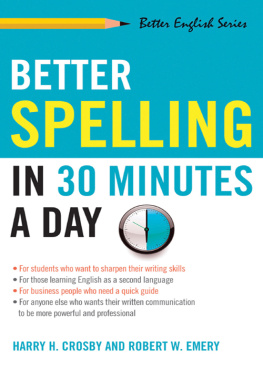
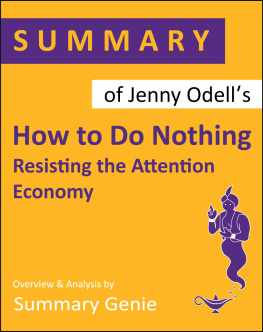
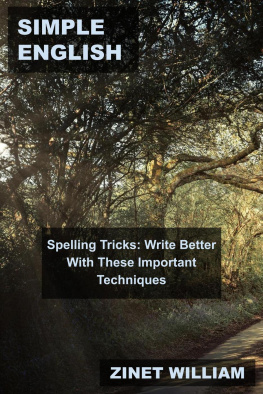




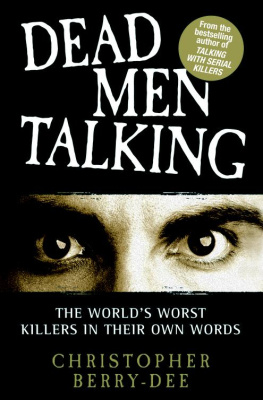
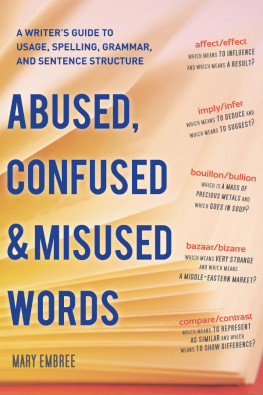

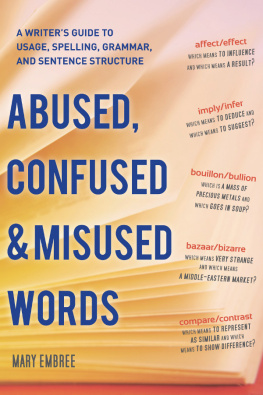

 Copyright 1994 by Harper Collins College Publishers Trade edition published 1995 by The Career Press, Inc. All rights reserved under the Pan-American and International Copyright Conventions. This book may not be reproduced, in whole or in part, in any form or by any means electronic or mechanical, including photocopying, recording, or by any information storage and retrieval system now known or hereafter invented, without written permission from the publisher, The Career Press. by Book-mart Press To order this title, please call toll-free 1-800-CAREER-l (NJ and Canada: 201-848-0310) to order using VISA or MasterCard, or for further information on books from Career Press. Library of Congress Cataloging-in-Publication Data Emery, Robert W. Library of Congress Cataloging-in-Publication Data Emery, Robert W.
Copyright 1994 by Harper Collins College Publishers Trade edition published 1995 by The Career Press, Inc. All rights reserved under the Pan-American and International Copyright Conventions. This book may not be reproduced, in whole or in part, in any form or by any means electronic or mechanical, including photocopying, recording, or by any information storage and retrieval system now known or hereafter invented, without written permission from the publisher, The Career Press. by Book-mart Press To order this title, please call toll-free 1-800-CAREER-l (NJ and Canada: 201-848-0310) to order using VISA or MasterCard, or for further information on books from Career Press. Library of Congress Cataloging-in-Publication Data Emery, Robert W. Library of Congress Cataloging-in-Publication Data Emery, Robert W.